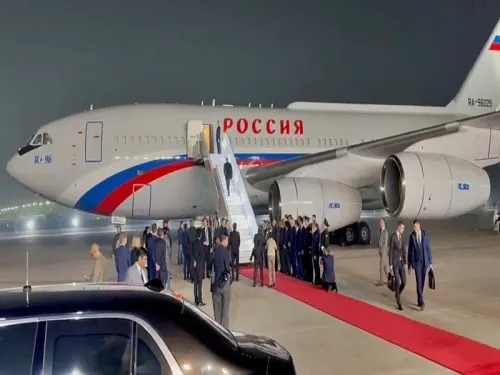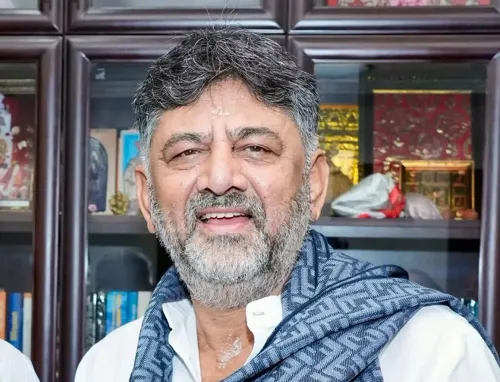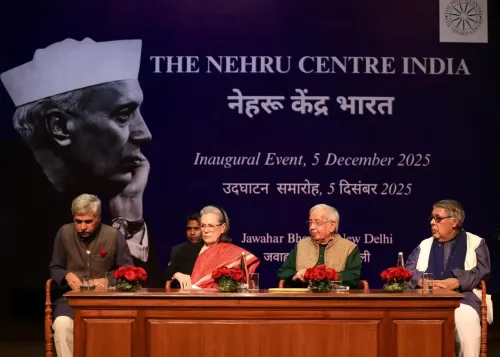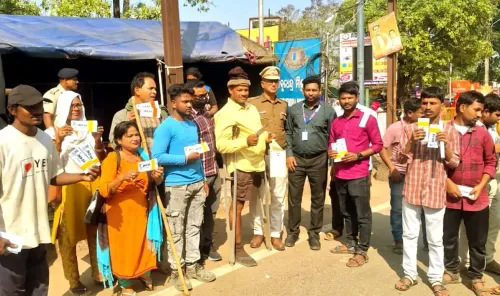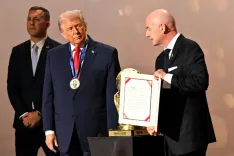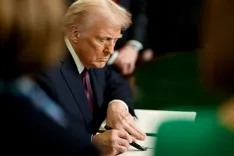Did Gujarat’s Anganwadi Sisters Really Send Over 3.5 Lakh Rakhis to Soldiers?
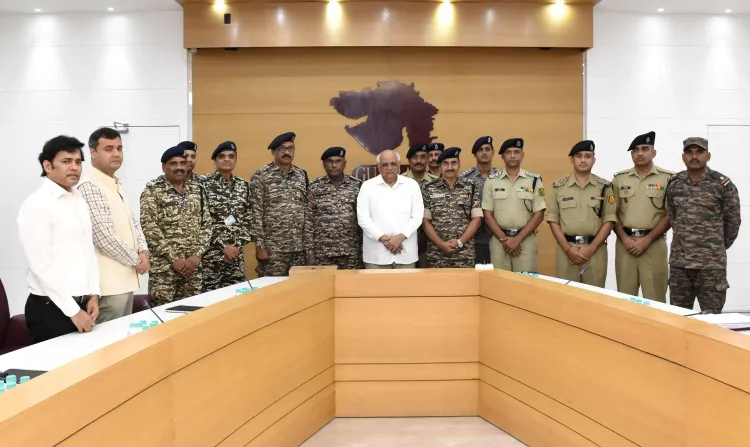
Synopsis
Key Takeaways
- Over **53,000 Anganwadi sisters** crafted **3.5 lakh Rakhis** for soldiers.
- The initiative represents emotional support for the armed forces.
- Recognized in the **India Book of Records** for its scale.
- Anganwadi centres play a crucial role in child and maternal health.
- Community involvement is key in supporting the armed forces.
Gandhinagar, Aug 7 (NationPress) More than 53,000 Anganwadi sisters from Gujarat have meticulously crafted and dispatched over 3.5 lakh Rakhis to the soldiers who defend our nation's borders. These Rakhis, created with deep devotion and patriotism, serve as symbolic shields of protection for the courageous individuals who remain far from their families.
During a ceremonial gathering in Gandhinagar, Chief Minister Bhupendra Patel presented the ‘Rakshasutra Kalash’, a symbolic urn that holds the sacred threads, to representatives of India's armed and paramilitary forces. The event was also attended by Women and Child Welfare Minister Bhanu Babaria, who emphasized the unity and spirit behind this noble initiative.
This campaign, spearheaded by the Department of Women and Child Development, has now been recognized in the India Book of Records for the highest number of Rakhis sent by Anganwadi workers to the armed forces.
During the ceremony, the certificate and medal for this achievement were awarded to CM Patel. Minister Bhanu Babaria remarked, “These Rakhis transcend mere threads; they symbolize the emotional bonds connecting the hearts of Gujarat’s women to our soldiers.”
“Under the guidance of our Prime Minister, the armed forces have upheld our dignity through various missions, including Operation Sindoor. Today, our sisters have expressed their gratitude through these threads,” she added.
The Rakhis will be delivered to personnel from the Indian Army, BSF, CRPF, and NDRF, particularly those stationed in Gandhinagar. The symbolic handover was met with heartfelt acceptance by the soldiers present.
Also present at the event were Chief Minister’s Secretary Dr. Vikrant Pandey, Women and Child Development Secretary Rakesh Shankar, Commissioner Dr. Ranjit Kumar Singh, senior officials, BSF and CRPF personnel, NDRF representatives, program officers, and Anganwadi workers from the Gandhinagar Municipal Corporation.
As of 2025, Gujarat boasts approximately 53,000 Anganwadi centres, which play a crucial role in providing early childhood care, nutrition, and pre-school education across the state. These centres function under the Integrated Child Development Services (ICDS) scheme—an initiative by the Indian government aimed at enhancing the health and development of children under the age of six, along with supporting pregnant and lactating women.
The Anganwadis in Gujarat are operated by workers and helpers, predominantly women from local communities.
They serve as the primary point of contact for families in rural and urban slum areas regarding maternal and child healthcare, immunization support, and nutritional guidance.
In addition to routine health and nutrition services, many Anganwadis are now integrated with Poshan Abhiyaan (National Nutrition Mission), which addresses malnutrition through technology and community engagement.


